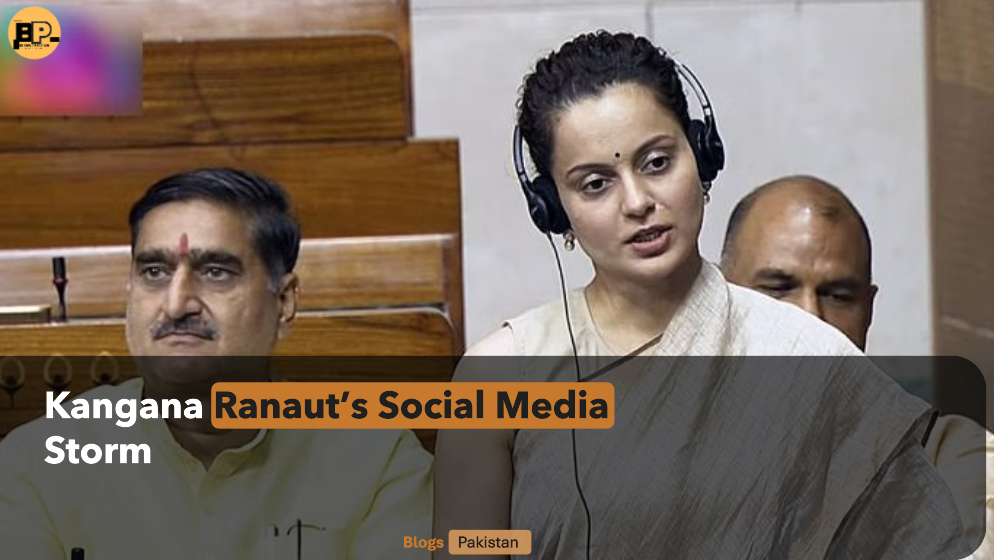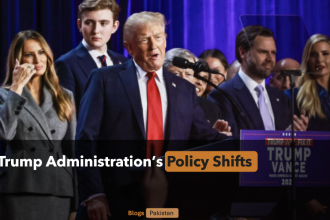In the age of viral tweets and instant reactions, . The latest controversy involving Bollywood actress-turned-politician Kangana Ranaut is a stark reminder of how a single social media post can blur the lines between personal opinion and diplomatic sensitivity.
The Tweet That Ignited the Fire
On a seemingly ordinary day, Kangana Ranaut—known for her unfiltered remarks—took to Twitter (now X) to draw a comparison between two global leaders: Indian Prime Minister Narendra Modi and former US President Donald Trump. Her now-deleted post claimed Trump was “jealous” of Modi’s soaring global influence, dubbing the Indian PM the “father of all alpha males.”
While the tweet was intended to praise Modi, it inadvertently stirred a hornet’s nest. Critics argued that such comparisons risked oversimplifying complex international dynamics. More importantly, it came at a time when India has been meticulously balancing its economic ties with the US, particularly in the tech sector.
BJP’s Swift Damage Control
[Image suggestion: BJP party emblem alongside a “Delete Tweet” button graphic]
The Bharatiya Janata Party (BJP), known for its disciplined communication strategy, acted swiftly. Senior leaders flagged the tweet as diplomatically inappropriate, urging party president JP Nadda to intervene. Within hours, Kangana received a directive to retract her statement.
In her public apology, she wrote:
“Respected national party president Shri JP Nadda ji called me and asked me to remove the tweet… I apologise for posting my very personal opinions.”
This incident underscores the BJP’s zero-tolerance approach toward remarks that could strain India’s foreign relations—a lesson even high-profile members like Kangana aren’t exempt from.
Behind the Scenes: Trump, Tariffs, and Apple’s India Pivot
[Image suggestion: Infographic showing Apple’s supply chain shift from China to India]
To understand why Kangana’s tweet caused ripples, we must rewind to Donald Trump’s tenure. His administration imposed steep tariffs on Chinese imports, pushing tech giants like Apple to diversify manufacturing beyond China. India, with its “Make in India” incentives, emerged as a critical alternative.
By the Numbers:
- 600 tons of iPhones (1.5 million units) were exported from India to the US in 2023.
- Apple aims to produce 25% of its global iPhones in India by 2025, up from just 1% in 2021.
Trump’s recent comments criticizing Apple’s India expansion likely prompted Kangana’s defense of Modi. However, her framing of Trump’s “jealousy” oversimplified a nuanced economic strategy, risking misinterpretation as a partisan jab rather than a geopolitical analysis.
Celebrities in Politics: Walking the Tightrope
[Image suggestion: Split image of Kangana in a movie scene vs. Kangana at a political rally]
Kangana’s journey from Bollywood’s “Queen” to BJP MP reflects a growing trend of celebrities entering politics. Yet, her case highlights the challenges they face:
- Balancing Personal Branding and Party Ideology
While celebrities bring star power, their off-script remarks can clash with party agendas. - The Diplomacy Quotient
Global diplomacy demands nuance—a far cry from the black-and-white narratives often seen in films or social media spats. - Social Media’s Double-Edged Sword
A platform for connection can quickly become a minefield when discussing sensitive topics.
Why This Controversy Matters Beyond the Headlines
[Image suggestion: Indian and US flags intertwined with a smartphone showing a Twitter notification]
- India’s Diplomatic Balancing Act
As India strengthens ties with the US, Canada, and Europe, every statement from its leaders—or influencers—is scrutinized. Kangana’s tweet, though deleted, momentarily shifted focus from policy to personality. - The Rise of “Diplomatic Influencers”
Politicians with massive followings must now weigh their words not just for voters but for international audiences. - Corporate Geopolitics
Apple’s India pivot isn’t just about tariffs—it’s a strategic move aligning with Modi’s vision of a self-reliant India. Misrepresenting this risks undermining bipartisan economic achievements.
Lessons for the Digital Age
Kangana’s episode offers timeless takeaways:
- Think Before You Tweet: For public figures, every post is a potential press release.
- Context is King: Simplifying global issues for social media can backfire.
- Party Over Persona: In politics, collective discipline often trumps individual expression.
[Image suggestion: A collage of social media icons with a “Caution” tape overlay]
Final Take: Navigating the New Rules of Engagement
As India ascends on the global stage, its representatives—whether career politicians or celebrity entrants—must master the art of measured communication. Kangana Ranaut’s deleted tweet isn’t just a fleeting controversy; it’s a case study in how digital age diplomacy demands both passion and prudence.
For now, the BJP’s message is clear: Praise Modi, but leave the alpha male analogies at the door.










